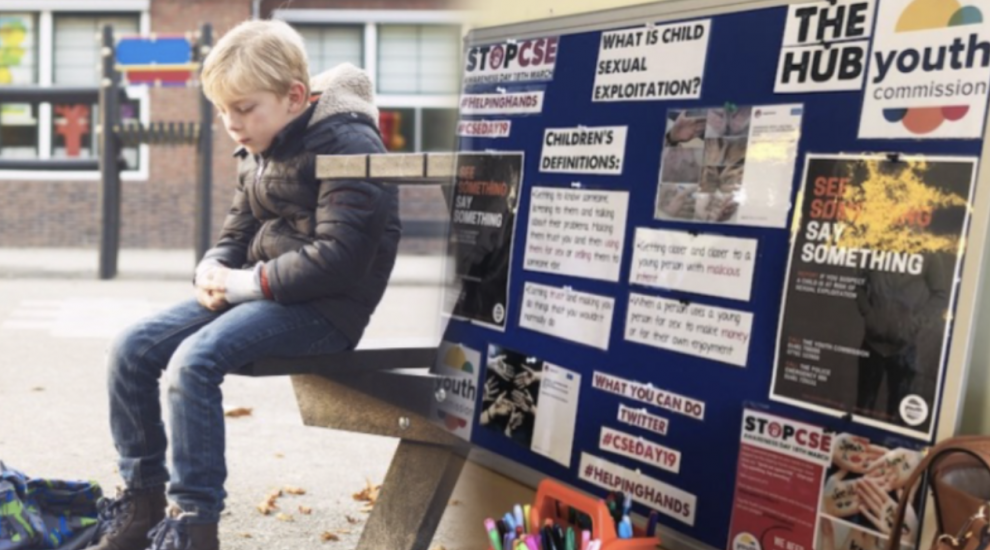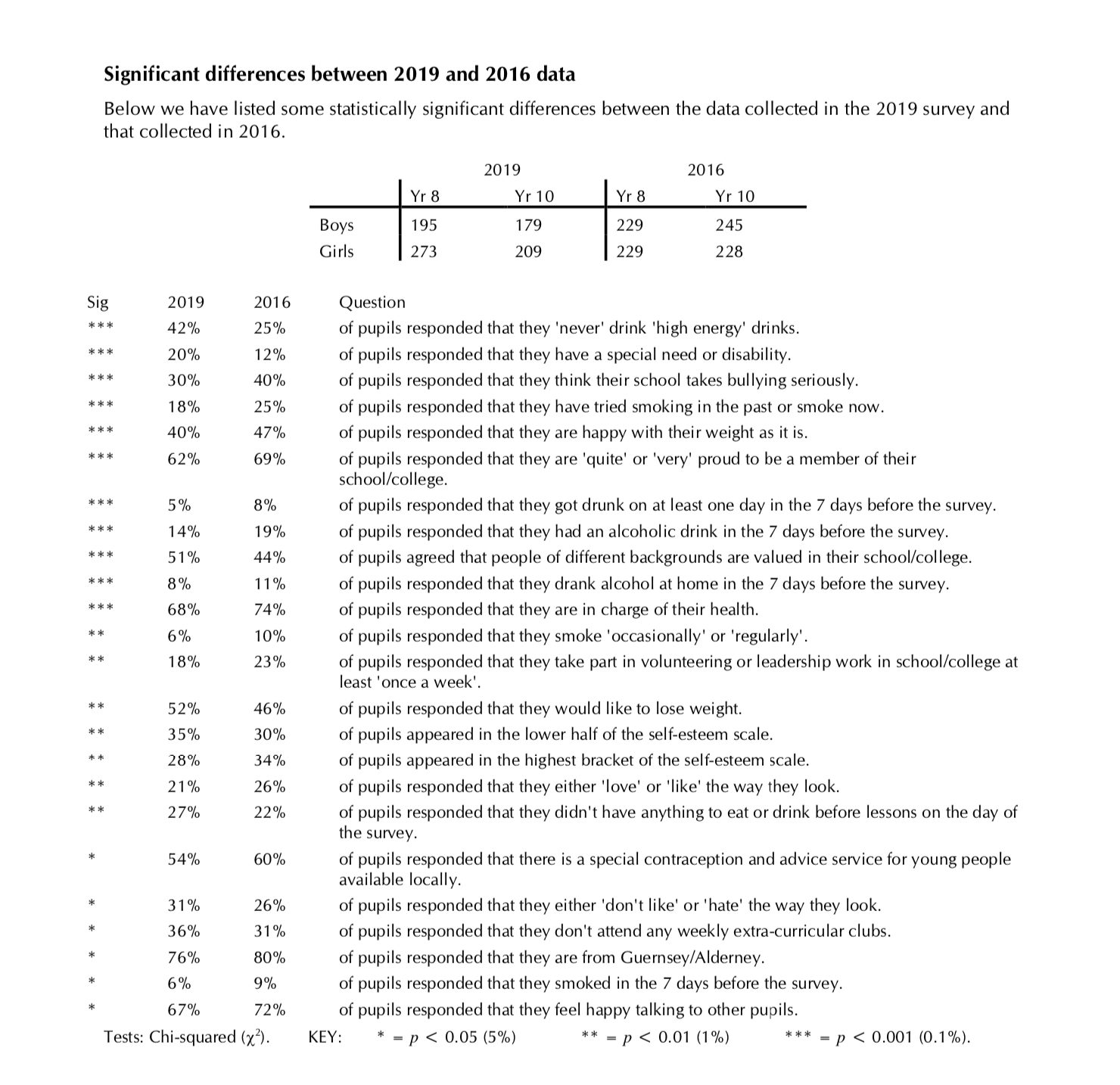


Demand for young people's support services is exceeding supply, with The Hub having to create a waiting list for the first time.
The Guernsey Young People's Survey, released today, surveyed 590 Year 6 Primary School pupils and 848 Year 8 and 10 pupils from States schools.
Between 71% and 90% of the total cohort for each year group took part in the study, which asked young people how they felt about a multitude of subjects, ranging from their health and wellbeing to use of illegal substances.
Alun Williams, Education Lead at the Health Improvement Commission, said the results highlighted the need to help young people develop confidence and better self-esteem.
"As with previous surveys, young people in Guernsey face similar pressures to young people elsewhere. There is continuing evidence that Guernsey youngsters are struggling with issues associated with emotional health and wellbeing with a significant minority showing lower self-esteem and increased worries and anxiety," he said.
"It is however reassuring to observe that for the majority they are becoming more active, improving their diet and showing increasingly healthy attitudes to alcohol, tobacco and sex and relationships."

Emma Cusack, Emotional Health and Wellbeing Lead at the Youth Commission, said the insights gained from the survey mirrored research undertaken by the Youth Commission.
"For the first time since opening the Hub in 2012 we have had to create a waiting list for young people accessing support from our workers/mentors," she said. "The highest proportion of young people accessed our service for support around managing their emotions (anxiety and anger) followed by low mood. Recently we have also reported more referrals for those that are questioning their gender and/or sexual identity. We are therefore increasing our training opportunities to teachers and other professionals in this area so they can help support the demand.”
35% of secondary pupils, who were aged between 12 and 15, responded that they are at least 'quite' unhappy with their appearance and 18% said the same of their life as a whole.
39% of pupils responded that they have worried about the way they look 'quite a lot' or 'a lot' over the last 3 months and 21% said they have worried about family problems.
Unsurprisingly, self-esteem was not as much of an issue for the younger participants in the survey, with 83% of the year 6 pupils saying they are glad they are who they are.
Initiatives like The Daily Mile are well regarded among primary pupils, with more 90% saying they thought it was worthwhile, and Mr Williams stressed that there was a strong link between positive physical and mental health.
“It is encouraging to se a significant increase in perceived levels of activity especially with more young people being more active over four to five days per week. The Health Improvement Commission has referred to the next few years being a golden opportunity to embed high levels of physical as the norm across all sectors of the community and this is an encouraging sign that schools and families are incorporating activity into all aspects of young people’s lives.
"However it remains the case that most young people do not meet UK physical activity guidelines and it is of particular concern that activity levels are lowest amongst older students and girls. Guernsey is going in the right direction but much work still has to be undertaken to ensure that all young people benefit from the huge number of positive physical and mental health outcomes of being active.
Comments
Comments on this story express the views of the commentator only, not Bailiwick Publishing. We are unable to guarantee the accuracy of any of those comments.